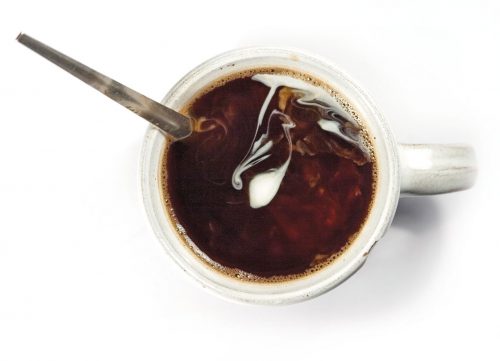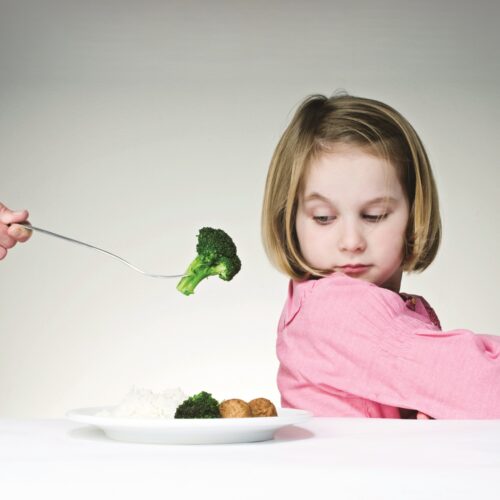
Senior nutritionist Rose Carr takes a look at the benefits and possible harms of coffee consumption and shows why it’s fine to enjoy your daily brew.
Worldwide we consume over almost 10 million tons of coffee a year, with the Netherlands being the top consumers at around 8.3kg per person, per year.
There’s a popular legend about how coffee was discovered. It’s said that Kaldi, an Ethiopian goat herder in around 600AD, saw his goats become friskier after eating red coffee berries. He then sampled the berries himself and felt energised.
Whatever its humble beginnings, coffee drinking soon spread and is now big business: it is the second largest trading commodity in the world (after oil). It’s estimated the global coffee industry employs more than 20 million people.
Coffee processing
Once harvested, the red coffee berries are dried to become the ‘green’ coffee beans that are packed into burlap sacks and sent around the world. These beans are blended – most coffee is a blend of different beans – and then roasted. It’s not until roasting that the coffee aroma develops. Roasted beans are then ground, or sold as beans to be ground, for use in cafés or your plunger at home.
For instant coffees there are several more processing steps: the coffee is brewed to make a liquid, which is then processed by either spray-drying or freeze-drying to form a powder or granules.
Decaffeination usually involves soaking the green beans in water to dissolve the caffeine which is extracted; flavour compounds which dissolved into the water are then reabsorbed back into the beans. The different decaffeination methods all remove 97% or more of the caffeine.
Coffee and health
Coffee contains polyphenols, the same type of antioxidants found in red wine, tea and chocolate. Coffee is so rich in antioxidants that it is the main dietary source of antioxidants for people in Bavaria, Spain, the US and probably many other countries.
Research indicates coffee consumption reduces the risk of gallbladder disease for women and decaffeinated coffee is associated with a lower risk of type 2 diabetes in post-menopausal women. Early results also suggest coffee drinking is associated with a decreased risk of liver cancer. Researchers continue investigating and debating whether it has any positive effect on exercise performance.
There’s no doubt that caffeine is a stimulant; it can make you feel more alert and help prevent fatigue. While keeping you awake at night is a problem if you’re trying to sleep, studies have shown that when people are drowsy their driving improves after drinking coffee.
The flip-side is too much caffeine can cause the ‘jitters’, insomnia or an increased heart rate. Some people are more sensitive to caffeine and should keep away from it but if you don’t fall into that category a moderate amount of caffeine – people have different tolerances, so let’s say one or two cups of coffee a day – can be positively stimulating.
Much has been made of possible links with cardiovascular disease, both positive and negative. One recent large-scale study found no association between the two; another large study suggested a protective effect from the antioxidants in coffee; and yet another suggests that any change in risk of heart attack depends on whether you have the gene for slow or fast metabolism of caffeine. Of course, there’s no way to know which you have!
With controversy still surrounding the effects of coffee consumption we encourage you to drink coffee if you like it and find it agrees with you, but suggest moderation. After all, there is no doubt taking a break from a hectic schedule does have positive health benefits.
Caffeine withdrawal
If you’re a habitual coffee drinker and you suddenly go ‘cold turkey’, you may experience some unpleasant side effects: tiredness, weakness, headaches, nausea and flu-like symptoms have all been reported.
But not everyone feels these effects; a study of 11,000 people found only 11% reported symptoms of caffeine withdrawal.
Although individuals vary widely, it’s generally accepted by the researchers that sudden withdrawal is likely to affect you more the heavier your use of coffee. So if you are a heavy user, it might be wiser to cut down rather than to abolish the coffee altogether.
For more fascinating science-backed advice on coffee check out: The surprising health benefits of coffee, How to drink coffee without it affecting your sleep and Does coffee dehydrate you?
Article sources and references
- The Countries Most Addicted to Coffee. Statista, accessed November 2020.https://www.statista.com/chart/8602/top-coffee-drinking-nations/#:~:text=This%20year%2C%20people%20in%20the,hot%20brown%20in%20the%20world.
- Ming Ding,, et al. Long-Term Coffee Consumption and Risk of Cardiovascular Disease: A Systematic Review and a Dose-Response Meta-Analysis of Prospective Cohort Studies. Circulation. 2014 Feb 11; 129(6): 643–659. Published online 2013 Nov 7. doi: 10.1161/CIRCULATIONAHA.113.005925https://www.ncbi.nlm.nih.gov/pmc/articles/PMC3945962/#:~:text=Conclusions,associated%20with%20elevated%20CVD%20risk.
www.healthyfood.com










